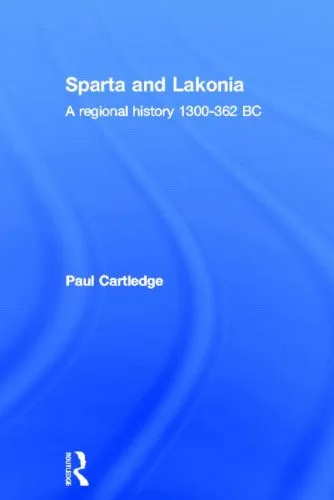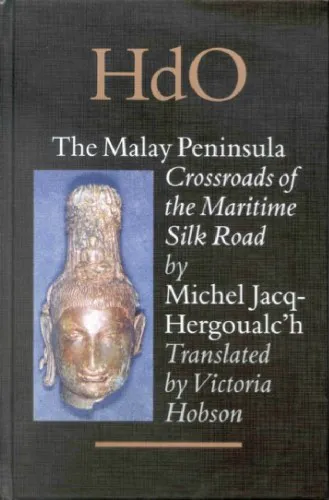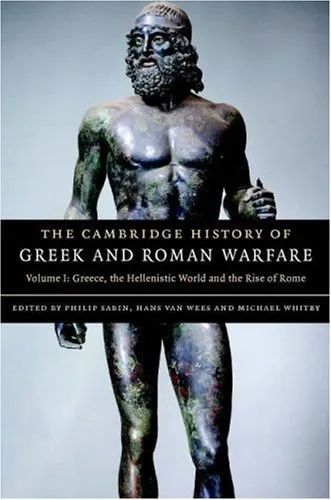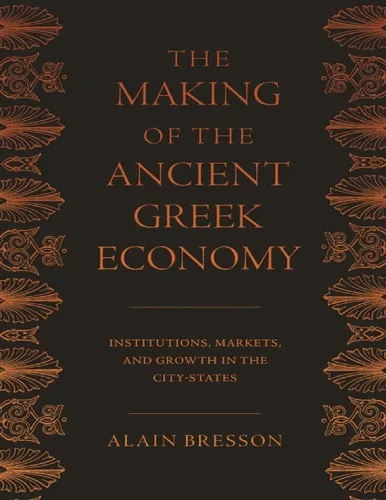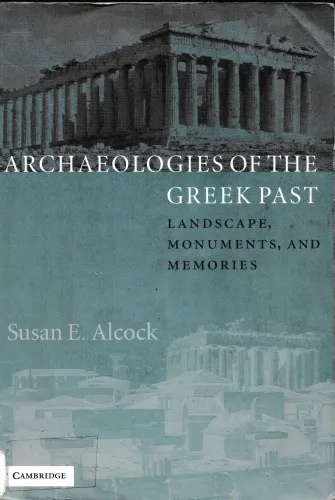Sparta and Lakonia: A Regional History 1300–362 BC & Hellenistic and Roman Sparta: A Tale of Two Cities
3.5
Reviews from our users

You Can Ask your questions from this book's AI after Login
Each download or ask from book AI costs 2 points. To earn more free points, please visit the Points Guide Page and complete some valuable actions.Related Refrences:
Introduction to 'Sparta and Lakonia: A Regional History 1300–362 BC & Hellenistic and Roman Sparta: A Tale of Two Cities'
Sparta and Lakonia were regions teeming with historical significance, their landscapes shaped by the footsteps of warriors, peasants, and legendary leaders. This book unveils the rich tapestry of history woven through the area from the Mycenaean period through to the dominance of Rome. Authored by acclaimed historians Paul Cartledge and Antony Spawforth, this volume is a compelling exploration into the social, political, and economic influences that defined this iconic region.
Detailed Summary of the Book
Across two distinct periods, Sparta and Lakonia metamorphosed under various pressures, both internal and external. The book is meticulously detailed, covering the evolution from the early settlements in the Bronze Age to the profound transformations brought by Roman governance. Initially, Sparta's unique dual kingship system and rigorous military culture set it apart from other Greek city-states. This martial society emphasized duty and discipline, molding warriors from a young age in the agoge training system.
However, as history progressed into the Hellenistic and Roman eras, Sparta faced numerous challenges, including shifts in power dynamics and cultural exchanges. The authors paint a vivid picture of how Sparta and its surrounding regions adapted, or in some cases, resisted these changes. By deconstructing ancient remains and rare texts, Cartledge and Spawforth reveal the broader realities beneath the storied glamour of Spartan martial prowess.
Key Takeaways
- The intricate balance of power within Spartan society, emphasizing its reliance on both servile helots and free Spartiates.
- The significance of geography in the development and sustainability of Sparta's military-oriented culture.
- The decline of Spartan hegemony post-Battle of Leuctra and its reinvention under Roman rule.
- A vivid portrayal of cultural evolution in response to external Hellenistic influences and integration within a broader Roman framework.
Famous Quotes from the Book
“Sparta was not just another Greek city, but a unique sociopolitical experiment that foreshadowed many later political and philosophical debates.”
“The stone ruins echo tales of valor and despair, a silent testament to the peaks and troughs of Spartan dominance.”
Why This Book Matters
This book is indispensable for anyone interested in the deeper understanding of classical civilizations, particularly that of ancient Greece. By bringing to life the rich historical and cultural heritage of Sparta and Lakonia, the authors provide a nuanced perspective that challenges common perceptions of Spartan society. Far from the simplistic vision of a war-mongering state, the book uncovers layers of complexity, including social structures and regional interactions, that contributed to the distinctive narrative of this historical powerhouse.
For scholars, students, and history enthusiasts, 'Sparta and Lakonia: A Regional History 1300–362 BC & Hellenistic and Roman Sparta: A Tale of Two Cities' serves as an essential resource that bridges the past with the present, shedding light on how ancient practices influenced modern concepts of governance, citizenship, and military strategy. Its detailed analysis and engaging narrative ensure that readers come away with a comprehensive understanding of Sparta's enduring legacy in the historical continuum.
Free Direct Download
You Can Download this book after Login
Accessing books through legal platforms and public libraries not only supports the rights of authors and publishers but also contributes to the sustainability of reading culture. Before downloading, please take a moment to consider these options.
Find this book on other platforms:
WorldCat helps you find books in libraries worldwide.
See ratings, reviews, and discussions on Goodreads.
Find and buy rare or used books on AbeBooks.
1405
بازدید3.5
امتیاز0
نظر98%
رضایتReviews:
3.5
Based on 0 users review
Questions & Answers
Ask questions about this book or help others by answering
No questions yet. Be the first to ask!
